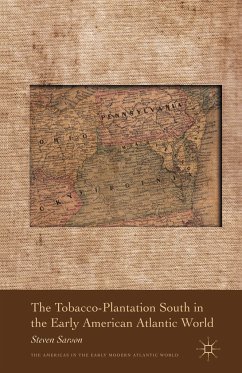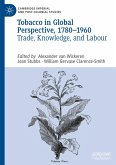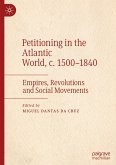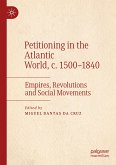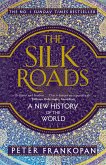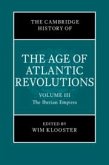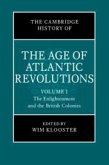A look at the extensive inequality and individualism in Prince George's County, Maryland, and the wider tobacco south, this book draws on colonial historiography to take a groundbreaking approach and examines the profound impacts of the structure of the international tobacco trade on local life.
"Sarson (Swansea Univ., UK) has written a meticulously researched cis-Atlantic study of wealth, power, and inequality in the early national upper South . . . In five tightly argued chapters, the author shows how the wealthy elite got richer while the poor struggled to survive. The early national tobacco South, as Sarson explicates, was a world structured by possessive-individualist ideology, vicissitudes of Atlantic market forces, inequality, and exploitation . . . Highly recommended." - Choice
"The American Revolution did not fulfill its promise in Prince George's County, Maryland. Sarson's new book shows that the break with Britain failed to inaugurate an era of widespread opportunity for enterprising white families - and certainly for free or enslaved African Americans. Tracking the history of inequality in an Upper South county, this impressively researched and persuasively argued study offers a fresh perspective on the formative era of the new nation's history."- Peter S. Onuf, University of Virginia, USA
"The Tobacco-Plantation South in the Early American Atlantic World provides a deeply researched and strongly narrated analysis based on the extensive local records of Prince George's County, Maryland, a place marked across the years by Revolutionary crisis and post-war adjustments to independence. Sarson offers a compelling challenge to the enduring myth that political independence paved the way to more widespread property ownership and, with it,egalitarianism. Instead, tobacco plantations, slavery, and landlessness persisted in Prince George's County, along with a social reality of deepening impoverishment." - Cathy Matson, The University of Delaware, USA
"Sarson digs deeply in a rich cache of historical archives and records to reconstruct life in a large swath of the Upper South. Admirably, he analyzes the society from top to bottom - from planters to small farmers to the landless majority of the population, consisting of tenants, wage workers, servants, and slaves. This impressive book challenges the age-old agrarian myths, replacing them more appropriately with realities on the ground." - Billy G. Smith, Montana State University, USA, author of Ship of Death: The Voyage that Changed the Atlantic World
"If you like seeing myths busted, you'll love this book." - Woody Holton, University of Richmond, USA, author of Forced Founders: Indians, Debtors, Slaves, and the Making of the American Revolution in Virginia
"The American Revolution did not fulfill its promise in Prince George's County, Maryland. Sarson's new book shows that the break with Britain failed to inaugurate an era of widespread opportunity for enterprising white families - and certainly for free or enslaved African Americans. Tracking the history of inequality in an Upper South county, this impressively researched and persuasively argued study offers a fresh perspective on the formative era of the new nation's history."- Peter S. Onuf, University of Virginia, USA
"The Tobacco-Plantation South in the Early American Atlantic World provides a deeply researched and strongly narrated analysis based on the extensive local records of Prince George's County, Maryland, a place marked across the years by Revolutionary crisis and post-war adjustments to independence. Sarson offers a compelling challenge to the enduring myth that political independence paved the way to more widespread property ownership and, with it,egalitarianism. Instead, tobacco plantations, slavery, and landlessness persisted in Prince George's County, along with a social reality of deepening impoverishment." - Cathy Matson, The University of Delaware, USA
"Sarson digs deeply in a rich cache of historical archives and records to reconstruct life in a large swath of the Upper South. Admirably, he analyzes the society from top to bottom - from planters to small farmers to the landless majority of the population, consisting of tenants, wage workers, servants, and slaves. This impressive book challenges the age-old agrarian myths, replacing them more appropriately with realities on the ground." - Billy G. Smith, Montana State University, USA, author of Ship of Death: The Voyage that Changed the Atlantic World
"If you like seeing myths busted, you'll love this book." - Woody Holton, University of Richmond, USA, author of Forced Founders: Indians, Debtors, Slaves, and the Making of the American Revolution in Virginia

